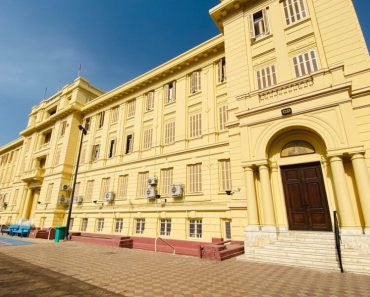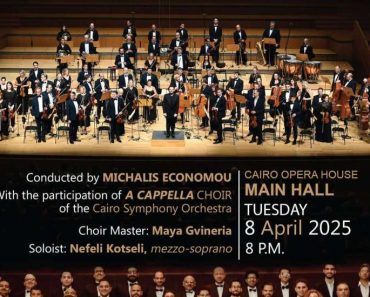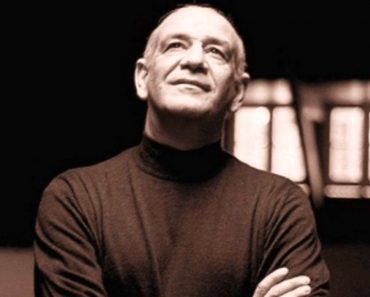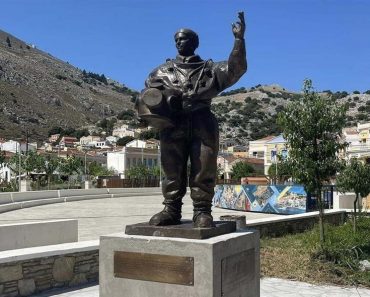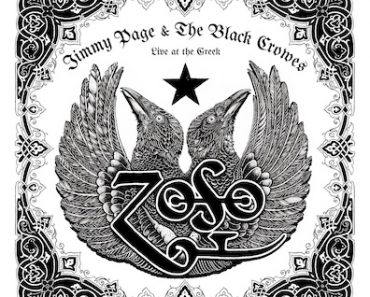by Marie T. Sullivan
This is a true story about a boy who realized his dream.
Gregory (not his real name) was born in the fabled historic province of Transylvania, in Romania. One afternoon when he was about ten years of age, he was alone in the family’s modest home. His mother was at work. His father was in the United States, having fled here to earn money as a professional musician and send it home to the family.
There was a sharp knock at the door. Young Gregory opened it to find four Communist party operatives in suits. They asked politely but firmly to come in and question him. Where was his father? How was he earning a living? What were his loyalties?
Gregory’s father was a gifted musician, a guitarist who would play at society gatherings at the bidding of party bosses, mostly accompanying ethnic singers. “Some of the best musicians in Bucharest would come to our home,” Gregory says. His father also played classical guitar, Brazilian and Greek music, and other styles. But he chafed under Communist rule, which had been declared in 1947, and under the oppressive Ceaușescu regime. Gregory recalls that his father was imprisoned briefly a couple of times after authorities stopped him on the street (a common practice) and found him carrying what was considered subversive material, either some “forbidden” music or perhaps a small Bible, Gregory isn’t sure which.
What Gregory didn’t tell the suited operatives was that in addition to sending money, his father sent him recordings of popular music from the United States: Johnny Cash, Dean Martin, Elvis. At that time and place, American popular music was forbidden. To Gregory, it was pure gold. (Note to parents: play quality music of all kinds at home to your kids. You never know what it might lead to.) The family had a radio and Gregory would listen on the sly to a short wave station, Free Europe. Through it he heard a song that was for him life-changing: Ella Fitzgerald singing “Speak Low” with Joe Pass on guitar. He rushed over to his small cassette tape recorder to try and capture what he could of it on tape.
Gregory reports that in those days, operatives would occasionally storm citizens’ apartments, search them and turn on the radio. If it was found set to Free Europe, “you were hauled in and harshly interrogated,” he says. Also, he reports, “one in three or four people was a party informant. It could be your neighbor. You had to be careful.” There were other curbs, too. In his primary grade years, for example, all students were compelled to study Russian. No other foreign languages allowed.
Gregory had taken up the accordion at age five and the guitar shortly thereafter. At age six, his raw talent recognized, he entered a conservatory after regular school hours, continuing through eighth grade, and then worked with more advanced teachers as a young adult. He studied assiduously, listened at every opportunity, and followed the old punch line: Practice, practice, practice.
One day a package arrived addressed to him from a favorite aunt who had travelled to the United States. It contained two recordings: one of classical guitarist Christopher Parkening and one of jazz guitarists Barney Kessel and Joe Pass, again with Ella Fitzgerald.
Gregory was a goner. Once he received those two recordings, he devoted himself to learning both classical guitar and improvisation.
Here, a detour.
Most Americans of a certain age recall the jazz/rock band Blood, Sweat & Tears (BST), a hugely popular group that once surpassed the Beatles on the pop charts. The voice of its lead singer, David Clayton-Thomas, was burnt in to our national consciousness at a time when the entire country listened to the same top forty hits on the radio. This was culturally unifying, unlike now when in most homes each family member consumes their own media choices in different rooms of the house and when a million songs, not forty, are available at any given moment (see Too Much of Everything).
A remarkable film documentary about BST released in 2023 tells their story. Its memorable title: What the Hell Happened to Blood, Sweat & Tears? If you’re a Boomer who appreciates their music, get hold of it for a trip down memory lane to the era of the Vietnam War and bell bottom pants.
BST hit the top of the charts in 1968 with an album that generated an unheard-of three hits from a single recording: “And When I Die,” “Spinning Wheel,” and “You Made Me So Very Happy.” Every human voice is unique, and preferences are subjective. But for my money, Clayton-Thomas’ voice is one of the most honest and appealing of them all. I would rather shake his hand than that of Michael Jordan, Wynton Marsalis or Barbra Streisand. Maybe he’ll see this article and call me up.
BST was no garage band. Its members were highly skilled, studio-level jazz musicians, which particularly manifested in their first-rate horn writing and playing. (Did you know that serious jazz musicians spend years practicing various scales in all keys, upside down and backwards, mastering them to suit chord progressions to countless standard tunes? The scales are from centuries-old church modes: Dorian, Lydian, Locrian and others of similarly poetic names. Well-trained jazz musicians are expected to play these from memory, I repeat, in all keys. Don’t try this at home. Why all this exertion? Because it gives them the skills with which to release musical ideas. This huge initial effort eventually frees them to improvise without effort. The high-level ones study advanced music theory that is on the level of quantum physics. They do all this with slim prospects of an economic payoff. So hug a jazz musician when you next see one.)
In 1970 the State Department under Richard Nixon invited BST to do a goodwill tour to Eastern Europe. With one exception, the band members couldn’t have cared less about geopolitics. Like most musicians they just wanted to play, and like many young Americans in those rebellious times were anti-establishment and cynical about the U.S. Until they went to Eastern Europe, where on arrival they were met by sinister, gun-toting officials who forbade them to take pictures.
BST was the first American rock band to travel behind the Iron Curtain, to Poland, Yugoslavia and—you guessed it—Romania. Their first stop was Bucharest, where they performed in a large concert hall to a packed house. It was, one observer commented, “an earthquake.” The music was so exciting, the performance so igniting, the horns and Clayton-Thomas’ vocals so superb, that audience members stood and shouted “Freedom!” and “USA!”. For the first time, said the observer, “they were staring freedom in the face.”
The authorities didn’t like it one bit. Aside from exuberance, the audience was well behaved. No matter. Scowling guards released German shepherds into the crowd.
In Poland one man traveled twelve hours by train to hear the concert, an event he said was “unimaginable” at the time. The large hall was surrounded by police, since word of the Bucharest “riot” had reached them. By this point in the tour, BST band members were reassessing their cynical view of the United States. What happened on their return is extraordinary. But you have to see the film to find out.
Back to Gregory.
He attended the National University of Music and the National University of the Arts in Bucharest. By now a full-blown aspiring jazz musician, he was forbidden to improvise at school. Only classical or ethnic repertoire was permitted. A student heard improvising in a practice room would be interrupted, chided for disrespect, held in contempt and, Gregory says, “unlikely to graduate.” Despite all this, Gregory began to perform outside of school with some of Romania’s top jazz musicians. He gained experience. At age eighteen he was invited to record. Then came an invitation to tour Switzerland with a jazz orchestra. Heady stuff for a teenager.
In 1989 came the revolution against Ceaușescu, who was executed along with his wife. But according to Gregory, change followed slowly.
“I always knew I wanted to go to the U.S.,” he says. In 2000 he was offered a scholarship to study here. He then attended jazz workshops around the U.S. to learn from the best players in the country, to his utter delight. “These were famous musicians I knew from recordings,” he says.
Not everyone likes jazz, of course. But it is the best of American exports. A Washington University professor, Gerald Early, wrote “I think there are only three things that America will be known for 2,000 years from now when they study this civilization: the Constitution, jazz music and baseball. They’re the three most beautifully designed things this culture has ever produced.”
All this to state the obvious: We have the most glorious freedoms in this country, such as to play the music we like. Treasure them.
Here is the happy ending to Gregory’s story. He is musically liberated and now an accomplished, hard-working, flourishing musician residing in the U.S.—delighting his listeners, forever continuing to study and improve. And from time to time, sending funds home to his mother.
-30-
An Ohio native, Marie T. (Terry) Sullivan has lived in Chicagoland for all of her adult life. Her background is in music. For two years she served as culture editor for the now defunct Chicago Daily Observer.



